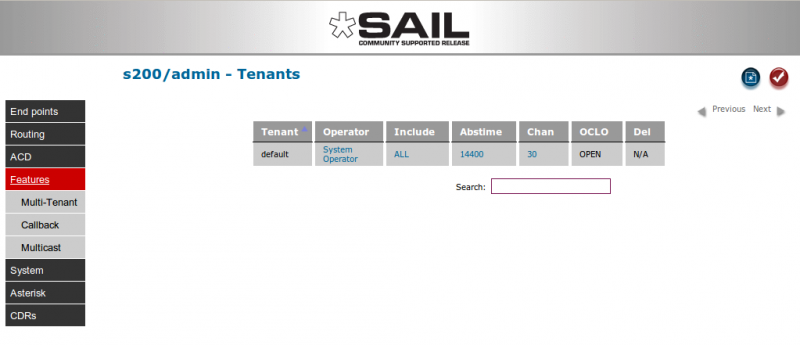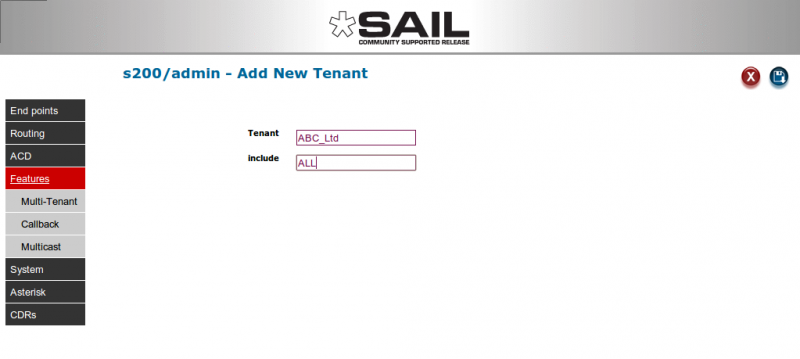SARK V4.0.0 Multi-Tenant
SARK multi-tenant is used to manage a shared PBX deployment where multiple groups of users need to be treated as completely separate entities. These groups are called "Tenants". The multi-tenant feature can be used to administer managed offices, buildings or campuses. It can also be deployed as a managed-service-offering for groups of remote users.
The Default Tenant
There is always at least one tenant present on your system. It is the default tenant and you cannot delete it, however you can modify its settings. You can nominate the "system operator" extension, the number of concurrent outbound channels allowed and the maximum allowed call time.
Adding a new Tenant
You can add a new tenant by clicking the "new object" button at the top right of the screen. You will only need to fill out two variables; the new Tenant's name and its "include" list. Each tenant can be thought of as a completely separate virtual PBX in its own right. It can have extensions, lines call groups, IVRs, Queues and so on which it exclusively owns and which are not available to other Tenants. Indeed, by default, extensions from different tenants may not even call one another by extension number. Instead they must use the PSTN numbers associated with the Tenant they wish to contact, just as they would if it was a separate PBX. This behaviour can be overridden at the individual tenant level by specifying an "INCLUDE" list. It lists each tenant that may be called by extension number. Optionally, this column may contain the keyword ALL to include all other tenants. Press the save button to save your new tenant to the database.

